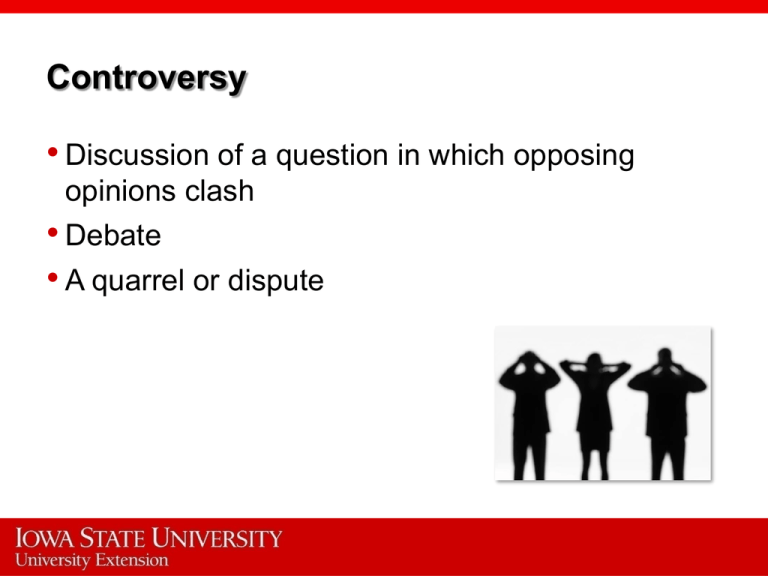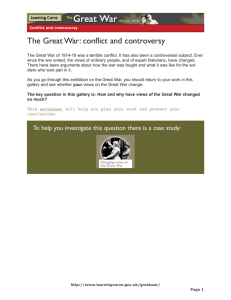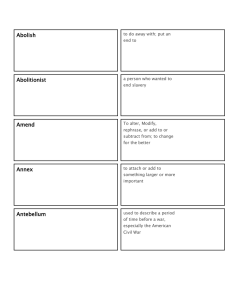• Controversy Discussion of a question in which opposing opinions clash
advertisement

Controversy • Discussion of a question in which opposing opinions clash • Debate • A quarrel or dispute Conflict • To fight, battle • To be antagonistic, incompatible, or contradictory • To be in opposition • A sharp disagreement or opposition Language of Conflict – Words or Meaning • Conflict • Compromise • Authority • Resolution • Confront • Power • Collaboration Sources of Conflict/Controversy • Lack of shared information or meaning • Different values, beliefs, and/or experiences • Outside factors (personality) Dispute Resolution Continuum Mediation Moderation Legislation Litigation Arbitration Negotiation Facilitation Resolution Administration Management or Termination Assumptions of Resolution • Differences are a natural part of the human condition. They are neither good or bad. • • Conflict is usually a symptom of tensions in relationships. • • Conflict requires confrontation and objective problem-solving. When accurately interpreted, differences can be resolved and serve to strengthen the relationships. Humans can resolve conflicts or handle controversy, even though it may require third party assistance. • Resolving conflict on the basis of parties’ interests is preferred. • Decisions made by consensus are preferred. • Effective group processes require that all members participate. Assumptions of Management • Differences should be treated in light of the common good. • At times some parties are obliged to lay aside their own views in the interest of the majority or law. • Everyone should have an opportunity to air personal views and feelings, but these should not be allowed to block progress. • It is never possible for everyone to be satisfied and those who insist on such an unrealistic goal should be shown the error of their ways. • Ultimately, right prevails and this is the central issue in conflict. • Conflict is resolved best through power. • Decisions are best made by authority. Listen Actively • Show them you understand • That they feel strongly • What they feel strongly about • Why they feel strongly about it Win Yourself a Hearing • Explain your own feelings • Refer back to their points • Make your points firmly but stay friendly Work to a Joint Solution • Seek their ideas • Build on their ideas • Offer your ideas • Construct the solution from everyone’s needs



